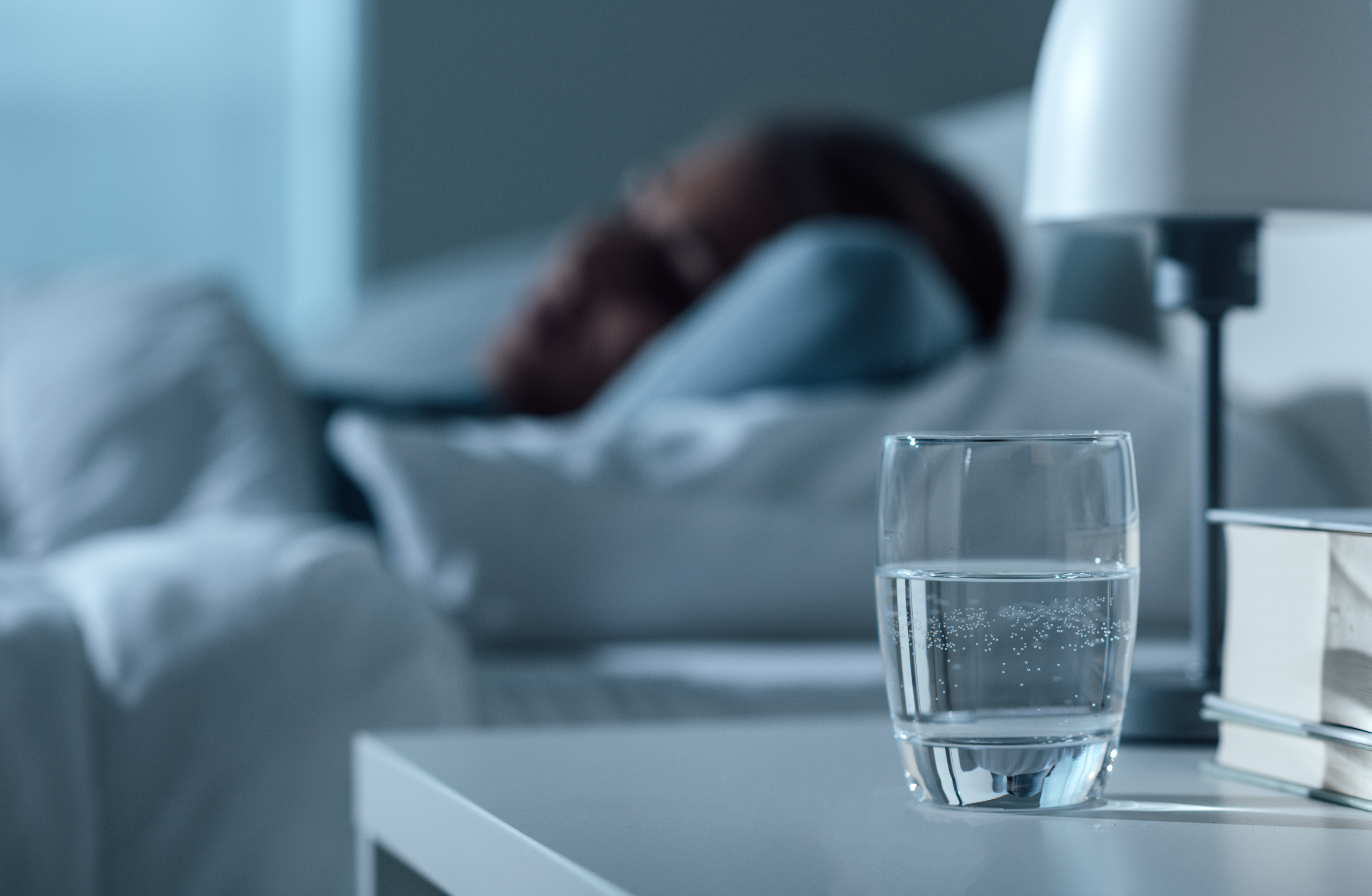How does hydration affect sleep quality?

Sleep hygiene, water intake and worker health
Good sleep quality is a fundamental part of overall health, contentment and productivity. The stresses of modern life are multiplying, and people are yearning for solutions which go beyond the slick marketing gimmicks and quick fixes one usually sees from the wellness industry. Nobody wants their time wasted, which is why only evidence-based methods of self-care will suffice.
The response to increasing fatigue and its consequences has been deemed a push for “sleep hygiene” – namely creating “a bedroom environment and daily routines that promote consistent, uninterrupted sleep.” These have included limiting phone or TV screen time late in the day, sleeping in a completely darkened room, increasing vitamin and mineral intake and practising calming methods such as meditation and breathing exercises.
Today we’re focusing on an undermentioned but still relevant factor: hydration.
What happens to sleep quality when you’re dehydrated?
There is a dearth of academic research on the finer details linking sleep quality with adequate hydration and vice versa, but what we’ve seen so far confirms a positive correlation that the water industry needs to be aware of.
The most recent and thorough documentation of the link between dehydration and disturbed sleep is this 2019 study published in the scientific journal Sleep. The study attempted (and apparently succeeded) to bypass cultural factors between US and Chinese adults as it monitored their levels of hydration and sleep duration. It concluded that “Short sleep duration was associated with higher odds of inadequate hydration in US and Chinese adults relative to sleeping 8 hr.”[1]
As if these findings weren’t clear enough, we also have evidence that the issue of poor sleep and poor hydration may lock the sufferer into a cycle that is tough to break. This Medical News Today piece breaks down how sleep deprivation is a factor in dehydration, which as we have established, further worsens sleep duration.
So, what does this have to do with the office water cooler and the pragmatic facilities manager?
Everything.
Office workers need premium refreshment to aid sleep quality
Even with increases in remote and hybrid working, the majority of the workforce has already returned to the office. Their needs for access to clean, refreshing water remain unchanged, and all responsible for keeping office workspaces open must prioritise the inclusion of an easy use POU water dispenser.
The mere presence of an office water dispenser should be an adequate primer for initially rousing interest and reminding workers to hydrate.
Nothing mobilises people like availability, and frequent hydration as a cornerstone of self-care and stress management is very much in for the modern day office worker. Demand doesn’t lie: hydration reminder apps have absolutely exploded in popularity, coming in dozens of variations with hundreds of millions of global downloads.
Workers want refreshment solutions. Workers are fulfilling their end of the bargain and doing their part to do theirs. It is on the facilities manager and their distributor to meet the demand and provide a dispenser which can help entrench such healthy habits.
Time to make the change
If you would like to contribute to this invaluable (and increasingly lucrative) initiative for improving workplace health, you can become a distributor today. The office or facilities manager in search of the ideal refreshment solution can also find a distributor. For all other inquiries, our sales team is always available, and our Learning Centre is full of resources covering all matters of the water industry.
